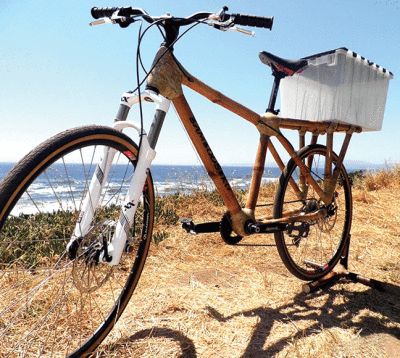
Last summer, Sarah Rottenberg and a group of her students from Penn’s Integrated Product Design program took on an unusual challenge . The task: help the Yonso Project, a non-profit organization in Ghana, become more profitable. The approach: prototype products that Yonso could manufacture using local resources and sell on the global market.
It all started when Kwabena Danso, who heads the Yonso Project, reached out to Rottenberg after hearing about the IPD program, a master’s track that merges design, engineering, and business. Danso had worked with undergraduate interns from Penn Engineering in the past, and he figured Rottenberg and her students could help him grow his organization. Meanwhile Rottenberg, the associate director of IPD, had gotten National Science Foundation funding to explore the ethics of product design. “So it was perfect timing,” she says. She could use some of the grant money to bring her students to Ghana.
The Yonso Project, which focuses on rural education and microfinance, had already developed an unusual market niche: manufacturing bamboo bicycle frames, selling them overseas, and using the proceeds to fund its programs.
Danso wanted to branch out into other products, and he figured the partnership would benefit the Penn students as well.
“One of the ways that product designers often engage in developing countries is to figure out how we can better design products to meet their needs. So, say, access to water or power, or infrastructure,” Rottenberg says. “All of these are really huge issues that are hard to address. And one of the challenges of that is that if I was to take design students for two weeks to Ghana—even for two months—it would be really hard to understand enough about the local context to design something that’s actually likely to work.”
So they took a different tack. “We were thinking less about how can we design something for them,” Rottenberg explains, “and more about how can we help this organization create a sustainable business.”
Graduate students Anna Coutourier, Yoshi Araki, and Yilin Lu worked with her on the project.
In Kumasi, Ghana, the students toured Danso’s workshop, met with local artisans, and assessed the nearby sawmill. They also tapped into an invaluable resource: their inner consumers.
“Their story is really great,” Couturier says, “but if I went on their website I wouldn’t be able to afford a bike.” Yonso’s frames cost up to $600. So they recommended expanding the product line with items that could retail for between $30 and $100.
They figured it made sense to stick to bamboo products—it grows wild in Ghana, and it’s free to use. And since the Yonso Project was already selling bikes, bike accessories seemed like a natural next step.
There were, of course, obstacles. Danso had a small workshop where his workers built the bicycles—but the space was barebones. It didn’t even have electricity.
“At the two or three times in the [manufacturing] process where they needed to use power tools, they would literally carry the frames and the tables into the community center, plug in, and do their work there,” Rottenberg says. “And that’s on days when they had power, which is not every day.”
Danso knew that problem all too well. “If something in the US takes one or two minutes to do, in Ghana it takes six minutes—or maybe even an hour,” he explains. “In Ghana, because of the limitations, you don’t find a certain professional touch in the products.”
The IPD team adjusted their brief. They wanted to shoot for products that looked sophisticated, but were relatively easy to manufacture.
“Part of what my students got out of that was perspective,” Rottenberg says. “Like, ‘Oh my God! It’s so easy for us to do anything!’ Just because they have access to these amazing labs on campus and these amazing facilities.”
After brainstorming with Danso, the students came up with a workable idea—bags and baskets made out of bamboo and hand-woven cloth. They produced binders of research on bamboo manufacturing techniques. When they returned to the US, the team reached out to Bressler Group, a product design company in Philadelphia, and finalized their prototypes. Then they sent over their work, along with detailed manufacturing instructions.
Danso and craftsmen at Yonso are now fine-tuning the designs and the manufacturing process. He’s also looking for distributors to help them reach consumers overseas.
And he’s thinking of expanding the business.
“I think one of the brainstorming sessions led to us getting our new office and our workshop,” he says. The students also recommended redesigning the organization’s website, to better market the bikes and any new products.
Now that “we’ve delivered our deliverables,” Rottenberg says, there’s not much left for the Penn students to do. And that’s sort of the point, she says. After all, the whole idea behind the IPD program is that a little bit of good design can go a long way.
—Maanvi Singh C’13





This sort of international social enterprise project is a great way for students to get interesting experience and for young companies to get useful consulting. The Yale School of Management sent consultants out to the Philippines to help out my company, Bambike. We had a great time together and are in the process of implementing their suggestions. Though, I graduated from Penn ’06 and am wondering if the IPD would be interested in working with Bambike on developing the next generation of bamboo bikes. I hope we can collaborate!